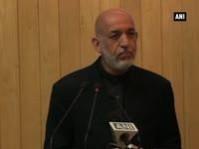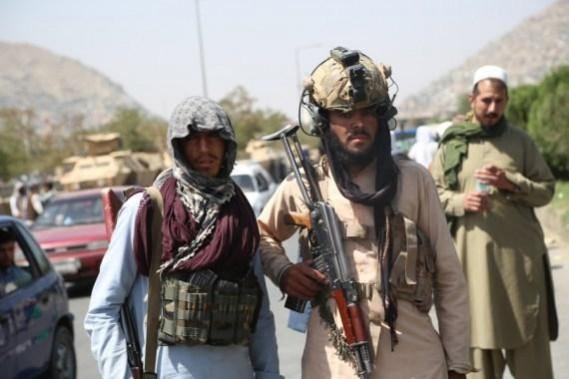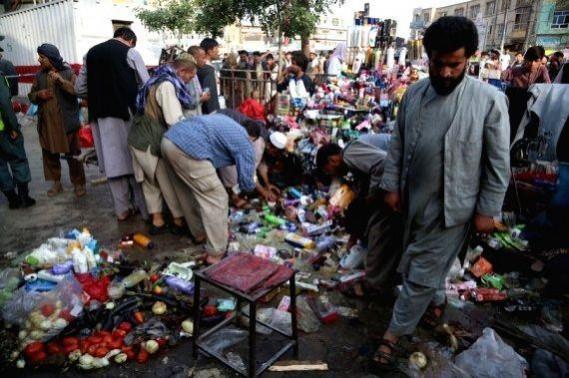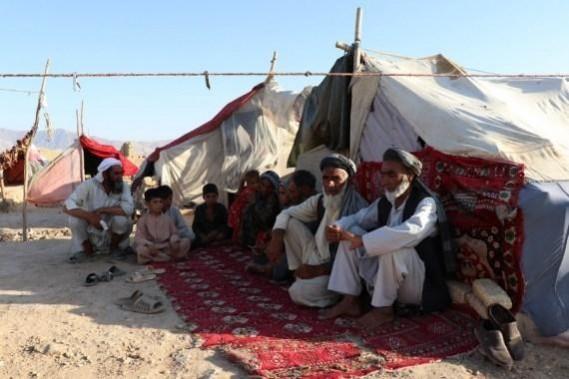The Taliban met former Afghan President Hamid Karzai and Chairman of the High Council for National Reconciliation Abdullah Abdullah as the insurgent group is seeking to form a new government in the war-torn country.
The meeting on Wednesday night came after former Afghan President Ashraf Ghani left Afghanistan following the Taliban's takeover of most parts of the country, including the capital city of Kabul, on Sunday, reports Xinhua news agency.

Karzai, who was the President from 2001 to 2014, has been leading efforts to ensure a peaceful transfer of power in Afghanistan, according to media reports. TOLO News said that Wednesday's meeting took place in Abdullah, but there were no further details of the discussions.
On Tuesday the Taliban confirmed to TOLO News that they seek to establish an inclusive government in Afghanistan. A Taliban official told TOLO News that the results of their discussions with Afghan politicians and representatives from the international community about forming an "inclusive government" will be made public soon.
Sources close to Karzai and Abdullah said that Amir Khan Motaqi, a senior member of the Taliban leadership, in a meeting with Afghan politicians on Monday pledged to establish an inclusive government.
"The discussion is how can an inclusive government be established that is accepted by all and that will lead society toward prosperity," TOLO News quoted Gul Rahman Qazi, a close aide to Karzai.
Since the US troops started to pull out of Afghanistan on May 1, the Taliban has been advancing quickly on the battlefield. During the past two weeks, the group has captured most of Afghanistan's territories.
Concern among world leaders
The fast-evolving situation in Afghanistan has aroused deep concerns in the international community. On Wednesday, various countries voiced their call for restraint and peace in the war-battered country.
Russian President Vladimir Putin and his Iranian counterpart Ebrahim Raisi agreed on the importance of establishing peace and stability in Afghanistan in a telephone call.
"Much attention was paid to the events unfolding in Afghanistan. Willingness to contribute to the establishment of peace and stability in this country was expressed," the Kremlin said in a statement.

Turkish President Recep Tayyip Erdogan said his country welcomes the "moderate" statements made by the Taliban leaders in Afghanistan.
"We have already stated that we can receive the leaders of the Taliban. We maintain this attitude today. We also welcome the moderate statements made by the Taliban leaders," Erdogan said during a televised interview.
Red Cross appeals for aid
Meanwhile, in the face of mounting criticism, US President Joe Biden has been defending his decision to withdraw troops from Afghanistan.
In an interview with ABC News on Wednesday, the President said that the US military could extend its mission in Afghanistan beyond August 31 to evacuate Americans on the ground.
Neanwhile, the International Committee of the Red Cross (ICRC) has appealed to international donors to step up their financial and political support for the war-torn Afghanistan, and vowed to continue its humanitarian assistance to the Afghan people.
"We have been present in Afghanistan since 1987. As we speak, there is absolutely no evacuation or withdrawal. The ICRC is indeed in the country," Christine Cipolla, the ICRC's regional director for Asia and the Pacific, told Xinhua in an interview on Wednesday.

"I have a team there of 1,800 staff. My colleagues are deployed everywhere in the country, not only in Kabul, but in more than 10 provinces," she said, stressing that the ICRC has "a strong mandate and willingness" to stay in the country.
Established in 1863, the ICRC, headquartered in Geneva, acts as the guardian of international humanitarian law. Its mission is to help people affected by conflict and armed violence around the world.
"At present, the situation in Kabul is quiet," Cipolla said. "There is no fighting in town. The same goes for the rest of the country for the time being. However, there is fear, there is anxiety, the situation is still very uncertain, particularly during this transition period where much is unknown... What is very much known are humanitarian needs," she added.
The Taliban carried out a swift takeover of the country's capital Kabul on Sunday.
Biden's stand
On Monday, US President Joe Biden said he stood by his decision to withdraw American troops from Afghanistan, while acknowledging Kabul's collapse came much sooner than Washington had anticipated.
Asked whether the US' withdrawal was to blame for the return of the Taliban and the humanitarian situation on the ground, Cipolla said: "That's more a political question on which the ICRC will not comment. What I know, however, is that the population of Afghanistan has been through tremendous suffering. We are talking about decades of war.
"The ICRC supports a number of health care centers in the country, and hospitals. Over the last nine days, in Kandahar where we're supporting hospitals, we have seen and helped treat 4,000 people, which is a massive influx compared to previous years.
Damage to infrastructure
"We also have hundreds of thousands of people that have been displaced internally, and had to flee because of the fighting. "Last but not least, the damage to infrastructure, critical infrastructure such as hospitals, electricity supply or water supply that have been damaged and will require repair."

On Tuesday, the Taliban said it intends to form an inclusive government in Afghanistan and does not want to have any internal or external enemies.
Asked what she expected from the new government, Cipolla said: "We have contact with the Taliban leadership on our safety, on our access, but also on our way that we can continue performing in the country, we can continue being there with the people of Afghanistan in order to carry out our humanitarian work.
"Those assurances in terms of security guarantees have also been renewed from the Taliban in recent days." Cipolla stressed that more international financial and political support will be urgently needed in the months to come.
"Financial support will be very important. The ICRC still needs $32 million in order to work in the country," she said.
(With inputs from IANS)

















